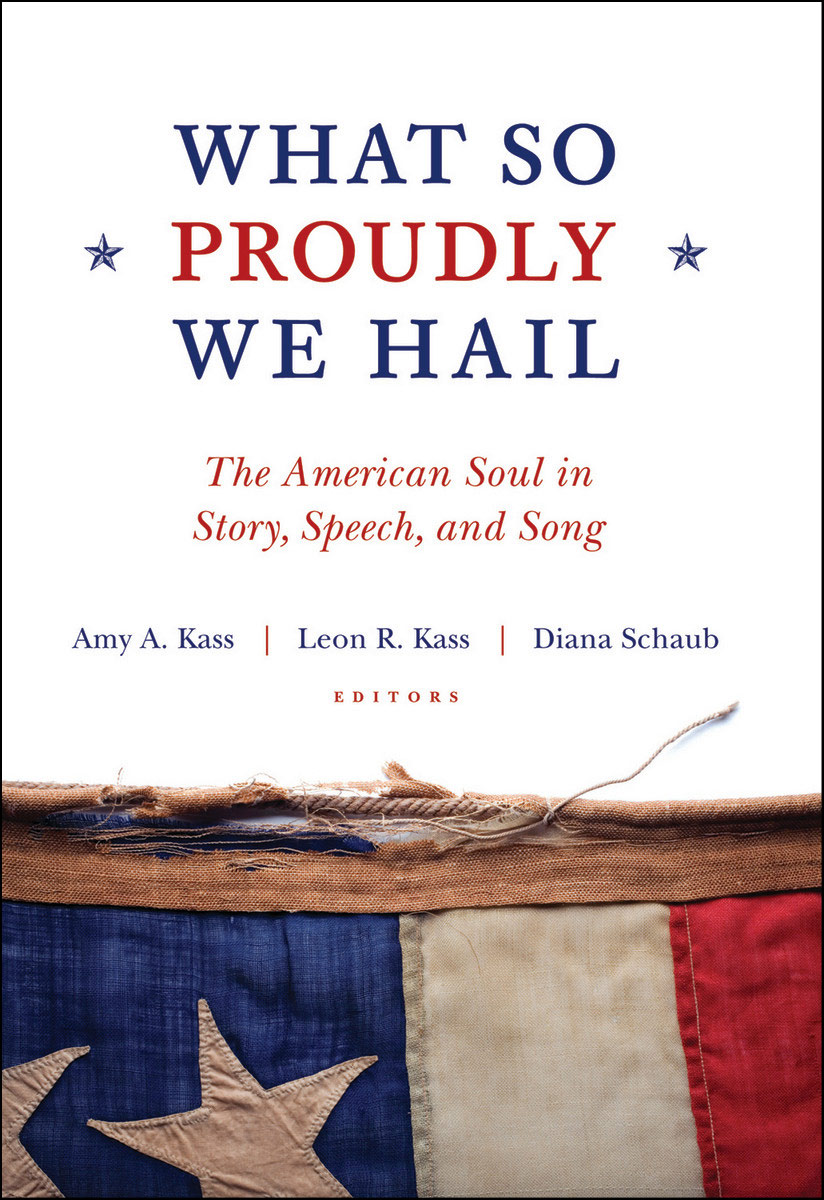This Fourth of July, as is my wont, I will bring down from the shelf my well-thumbed copy of What So Proudly We Hail and therewith touch off a semi-controlled bacchanal of patriotism in my little household. I do this as a civic duty and to set an example for my countrymen. The indispensable Karlyn Bowman of the American Enterprise Institute tells us that when it comes to feeling patriotic, Americans finish close to the middle of the pack among the nations of the world. We are above gloomy Norway but well below Azerbaijan. If more American families followed my lead and regularly consulted What So Proudly We Hail, we could take our rightful place at number one on the international patriot charts. (The present number one is Qatar. Come on.)

Be warned: What So Proudly We Hail is a big book. It’s nearly 800 pages, weighing a few ounces shy of three pounds with the dustcover off. It is also incomparably rich, gathering short stories, folk songs, essays, poems, official documents, speeches, and works of journalism from such U.S.A. fans as Mark Twain, Willa Cather, George S. Patton, and Ring Lardner. Some of the stuff would be found in any collection of written Americana: the Declaration of Independence, the Gettysburg Address, Washington’s Thanksgiving Proclamation, all of which deserve an annual re-reading anyway.
But the patriotic fun lies in the surprises. It never occurred to me that anyone could write a poem about a congressional hearing, but Herman Melville did it when Robert E. Lee came to Washington to testify before the Reconstruction Committee a year after Appomattox. (The poem is not as long as Moby Dick, but close.) The chief of staff to our current president, former Marine general John F. Kelly, makes an appearance with a Veterans Day speech delivered in 2010. After all this time, I suppose I shouldn’t be surprised by the learning and eloquence of Calvin Coolidge, represented here in a speech explaining the Declaration, but the surprise is always pleasant. “The mind of the [founding generation] was not so much engrossed in how much they knew, or how much they had, as in how they were going to live.”
Every piece has its place. The scheme is thematic rather than chronological. Under “The American Character: Individuals Free and Equal” we find (unexpectedly) stories by Saul Bellow, Kurt Vonnegut, and Philip Roth, none of them known for their unthinking boosterism. “Courage and Self-Sacrifice: Toward Country and Ideal” brings together contributions from John McCain and Mark Salter, Stephen Vincent Benét, and Michael Shaara. “The Goals of Civic Life” offers Frederick Douglass, W. E. B. Du Bois, and Wallace Stegner.
The juxtapositions are ingenious and always illuminating. To explore the relationship between law and justice, the editors place Lincoln’s Lyceum address (1838), which extols “reverence for the law” as the “political religion of the nation,” alongside Martin Luther King’s “Letter from Birmingham Jail,” the most compelling defense of civil disobedience ever written. The virtues that Ben Franklin believed were necessary for the all-American, self-made man appear just before a story from the Gilded Age by Henry James, “Pandora,” about an all-American “self-made girl.” The editors illustrate the power of the past, personal and national, with an Alice Walker story about family heirlooms close by Oliver Wendell Holmes’s Decoration Day address to Civil War veterans (“in our youth our hearts were touched by fire . . .”). Somehow—I don’t know how—a delightful Hyman Kaplan sketch by Leonard Q. Ross fits perfectly next to the lurid essay “True Americanism” by the appalling Theodore Roosevelt.
The book’s vast acreage, spiritually speaking, manages to encompass all the perennial questions raised by our great experiment in self-government. As readers wander through it, staring up in wonder at mighty sequoias like Lincoln and Douglass, lingering to appreciate homegrown geniuses like Stephen Crane and Ralph Ellison, they’ll see that the very largeness of the book testifies to the largeness of the country it’s meant to represent. The preoccupations of the editors turn out also to be the preoccupations of the country’s greatest minds and hearts. What is the link between civility and civic life? How do smaller communities relate to the larger national community and to one another? When do symbols cease to be symbols and take on the character of the thing they were meant to symbolize? How do we sustain the ideal of citizenship in a multiracial, multi-ethnic society that favors the individual over the collective? The book is itself an act of the educated patriotism it hopes to encourage.
The range of the collection reflects the range of interests of the editors: Amy and Leon Kass, late of the University of Chicago, and Diana Schaub of Loyola University Maryland. With the book’s publication in 2011 they got up a website too: whatsoproudlywehail.org. Schaub and the Kasses conceived their anthology as a kind of workbook, not only for teachers and students and parents and children but also for book clubs and reading groups, where citizens can gather to chew over the obligations and rewards of citizenship. It is a book of stories not arguments, aimed at the heart as well as the head, and its “ultimate goal, stated without apology, is to produce better patriots and better citizens.” With the secondary goal of putting Qatar in its place.
